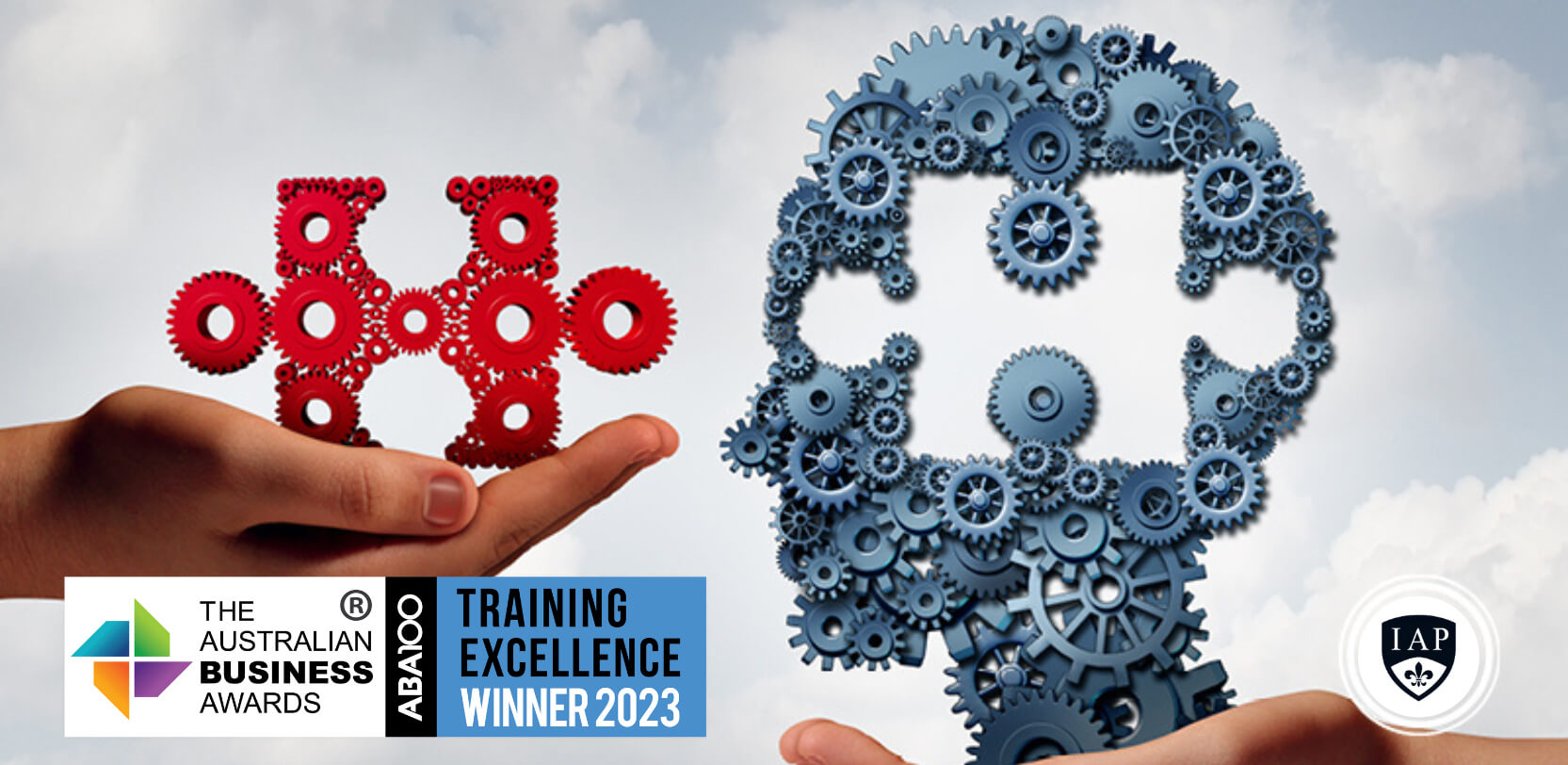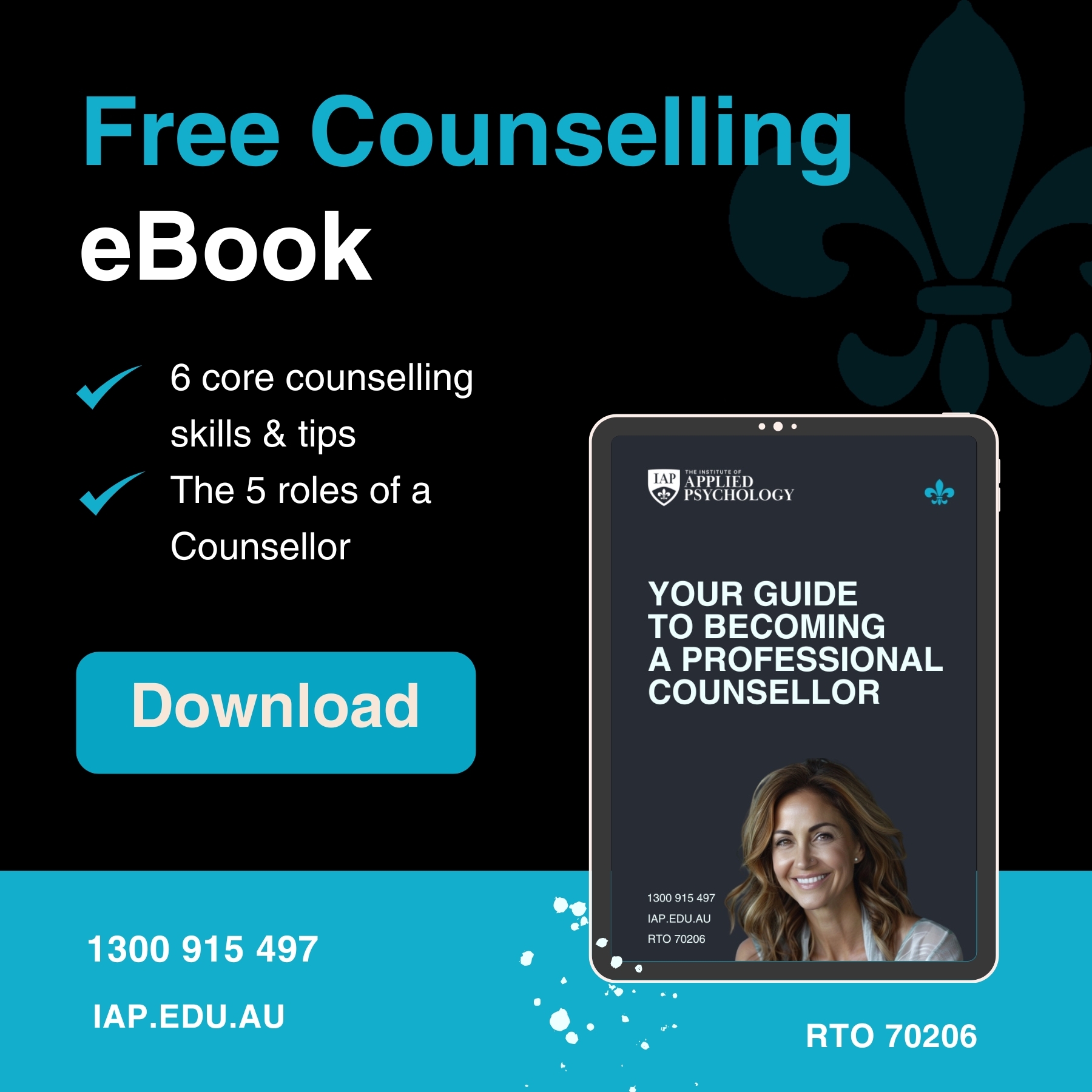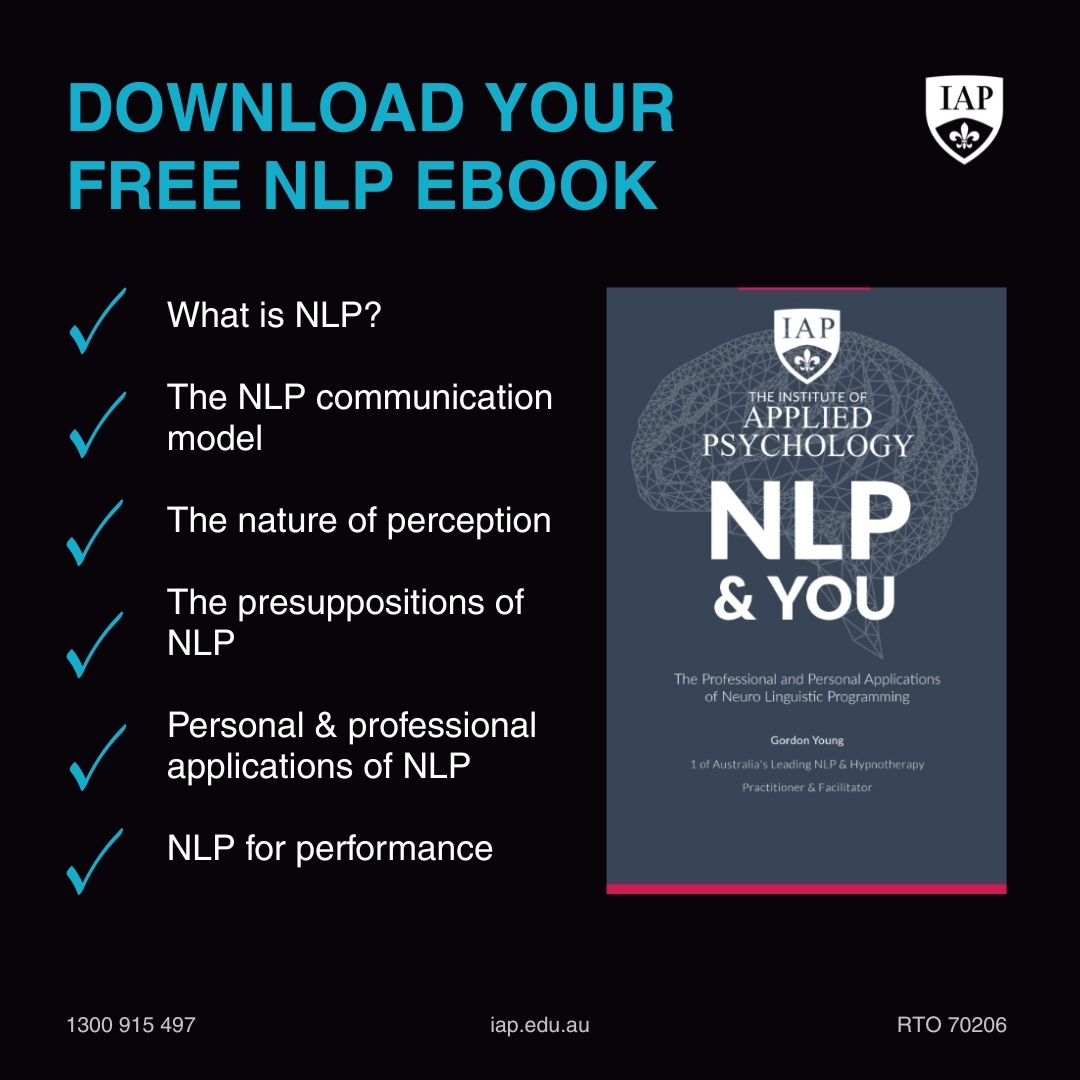How to stay positive with Dr Stephen Gilligan
Learn two steps that you can do now, with the world-renowned Dr Stephen Gilligan and Gordon Young to help you reduce stress now.
TRANSCRIBE
Gordon:
So hello, everyone and welcome. My name is Gordon young. I’m the Director of the Institute of Applied Psychology. I’ve got Dr Steven Gilligan here today. Steve is someone that I respect enormously. We recently had him here in Australia running a 12-day training. Stephen got his doctorate from Stanford University. He worked with the famous hypnosis lab there.
If you look him up, you’ll see that he’s in the top tier of psychologists on the planet. If you look up the most significant conferences in the world like the evolution of psychotherapy conference, Stephen is in the inner circle of lead trainers. He spends most of his time going around the world teaching. He does generative trance works – something that he created. He was a student of the legendary Milton Erickson and together with Robert Dilts, he has created something called generative coaching.
Now just I’d like to welcome Steve Gordon.
Stephen Gilligan:
Hi. Good to be here. Good to see you again. Yeah, it was only a short time, what six or seven weeks that I was down in beautiful Sydney for two beautiful weeks. And, you know, there was sort of little rumblings on the edges about the virus but wow, a lot has happened since then.
Gordon Young:
Yeah, you literally got out just before it all really hit the wall.
Stephen Gilligan:
Well, actually, after I left Australia, I came home, went to New York City and barely got out of New York City. So yeah.
Gordon Young:
It’s an extraordinary shift of events that nobody really could have possibly anticipated in terms of how it would be so devastating. For globally really. Yeah. And, yeah, there’s a lot of people making suggestions of how we deal with it. Domestic Violence is up. Depression, anxiety is up. The Australian Government is pumping a fair bit of money into mental health right now because there is that concern. How do we protect people? Yeah, we have over 1.5 million people lost their job a couple of weeks ago here in Australia, they’re expecting maybe 5 million to be unemployed in the next few weeks.
So there’s a lot of uncertainty, and no one knows when this ends, you know, we’re all – well, we’ve got a large, large proportion apart from essential services in lockdown, the schools are closed. So the entire country is closed. The question then becomes, people are at home. In some cases, they’re concerned about their finances. This is saying that you couldn’t anticipate. You’re going along; happily, you’ve got a career, you’ve got a job, you know, you got your life. And then this happens. And in many cases, if you’ve just started a business, you may have lost everything.
Stephen Gilligan:
Or you may have had a company for 30 years, and you may have lost everything.
Gordon Young:
Exactly. You know, and so, there’s a lot of advice out there about what to do, you know how to manage this. And I like to hear what a real expert would suggest. So, given the crisis, what do you suggest people do to achieve this so that they come out of this? Maybe stronger! Maybe using this as a pivot point in their life, because it comes down to interpretation. How do you use this?
Stephen Gilligan:
Well, it comes down to meaning and then how you use that meaning, to organise your response to, you know, what is the most devastating event or set of events that have ever occurred in most of our lives before. You start with easy questions. And, you know, we’ve all been struggling with that question.
And one, you know, one thing I can say, from working with people who have gone through your significant life changes, traumas, all sorts of setbacks for now. It’s been the work that I’ve done for over 40 years, is a simple idea; most of the time, we get along with just our sort of healthy way of dealing with things.
And that works most of the time just fine. When we run into these very significant life events, it disrupts our sort of healthy way of thinking and acting. And it disrupts it because we need to find some new way of thinking about ourselves and the world and how we experience things and how we respond to things.
That disruption creates this frozen stress state.
That stress means that your foot is going on the accelerator of the car because you need action. What am I going to do? What the heck’s happening and your hand is on the emergency brake at the same time, and because you’re shocked, you’re afraid you don’t know what to do. Your attention is sort of splintered in many directions. And that sort of double effect of speeding up while you pull the emergency brake.
That’s what trauma is. But that’s also what a common underlying state of stress is. And one thing we know about importance you cannot make the right positive decisions. You cannot think clearly, you cannot make creative, decisive new actions. While you’re in the stress state. It’s really important to know that. So if we were to think about this in terms of a couple of steps, the first step is to pull the car to the side of the road.
You know to stop trying to fix things. You need to take a little break. You need to pull that car off that you’ve got a small crash, take a break, find a way to get back to your positive sense of self. That’s the work that we do. I know that the work that you do is all about creating resources for people how to do that. So people need to know how to do that. They can check out your work, they can check out my work.
The first thing is, get a positive connection back to yourself. Anything you do, anything you think, while you’re in this stress state is going to make things worse. Have a sense when you’re assessing the damage, if you will, what you need to take care of with yourself, first. I often say to people remember when you’re sitting in an aeroplane and who knows? I live on planes.
But who knows the next time I’m going to be on an aeroplane. Number one, the flight attendant says, in the case of an emergency, these oxygen masks will come down, that will be released and put it on yourself first. If you’re a parent like I am like you are, that sounds counterintuitive, you know, you’d think I need to give the oxygen mask to my child first. But it makes sense when you think about it. If you’re not having an excellent connection to yourself, you can’t help anybody.
So pull off to the side of the road. Find a way to get that positive connection with yourself. Find a way to assess the damage and do whatever you need to do to be kind and caring and honest with yourself about what happened, what do I need to do?
That’s the first.
Second, you need to use this connection to get back into the world. This trauma that happened, this catastrophe that happened is still happening and is something that we’re struggling with, you know, at a global level. If you try to figure it out, with just you as an individual, the wave is going to is going to drown you. You cannot do this on your own. I’ve noticed on I see a lot of people who are speaking out, really talk about this, that to begin to get better, after you’ve got the connection to yourself, come out into the world and do something helpful to others.
I noticed the time I do something like this, you know, just giving a few suggestions or doing outreach to people, I feel better.
I feel that my life has value, I can get outside of my own worries, I can get out of this isolation. You know, it’s not just social isolation, and I can begin to feel positive again. Then you can start to think about that. What do I need to do now in my life to make positive use of these situations? Nobody would ever choose these circumstances, but they’re given to us sometimes. This is an extreme, extreme version. So once you have that connection to yourself, that you can feel good with yourself.
And then you make that connection to be helpful to others. Your family, your children, your community, then you can begin to say what I had is no longer available. There’s no turning back. How can I take advantage of this? And again you have to be in a relaxed state to have any sort of positive answer to these questions. You might say, well, easier said than done. That’s where the work that Gordon – you and I have spent our professional careers developing.
That’s where I think we can offer something that has value to help people find a way out of their stress, find a positive connection, make a commitment to affirmative action, be helpful to others. Then you can start asking that question, what do I need to do to reorganise myself professional life, what do I need to do to take action? It’s devastating. The answer may not be immediately forthcoming. Sometimes you may feel, I can’t even consider that. I’m advising people these days, starting with myself is allow yourself maybe 20% of each day just to feel helpless and falling apart. You know, it’s just unavoidable at this time.
So we try to keep it together, try just to have a positive attitude, we probably won’t be able to do it. So by saying, okay, maybe 20% of the day. I just feel overwhelmed. I just got to pull the car over to the side, let myself fall apart, be kind to myself, don’t fight it. And then get back on the road. Yeah. So please as you know, just a few other things, but I think that we can all do to create something positive out of this horrible, horrible event.
So… I see a tremendous outpouring from so many people about being helpful to people, you know talking creatively, about people coming together. And of course, there are notable counter exceptions. I’m not going to name names. But this is our chance. You know, all the values that we hold all the people that we love, all the education and training that we have made, this is our chance to really be able to make positive use of it, and you can do this.
You can do this!
Gordon Young:
Yeah. And I know some people are just getting really busy. And as you were talking there, I’m thinking yeh in some ways some people are getting active, and getting obsessively positive is actually still a crash state? Is that a stressed state? It looks like they’re doing something else. But I really liked that idea, and it’s something I’ve taught, and I’ve kind of forgotten it myself – to just allow yourself to have your moments – that you’re human.
If you think about it in one context, you know like if you’re financially strapped – think about it, let yourself have it. Rather than deny it, let yourself have it and then have your moment that will have its time and then what I can do. And you know, you and I both teach this idea that there’s way more resource available to you, either internally or externally, then we’re likely to access when we’re in a stressed state.
Stephen Gilligan:
Yeah.
And, you know, sometimes people say, well, you have everything you need already inside. And I’ve always thought, not quite. A lot of times we come to these places in our lives where we have to grow something new. That we have to go beyond what we, who we were before this time. I think that’s great, personally. You know you and I are both really busy people. I was on the road 230 days last year. And you know, I heard myself say, and like a lot of people oh, okay, I’m going to be home for a while. I’ll be able to read those books, I’d get some rest, and I think I’m busier than ever!
Partly because there’s a need, partially because everything that I had scheduled, and all the regular routines are just ripped up, and it’s like, what do we do to reorganise in the face of this? And partly because I feel I’ve got this panic that’s built up, you know, and that’s natural, it’s unavoidable that given what’s happening, I feel like every rug that I’ve been standing on the last 20 years has gotten pulled out.
And that you and I, in our work are kind of more of the lucky ones, you know, where we have, you know, the family, we, we were not out on the street, you know, and so, the important thing is, life gives you these experiences sometimes. Maybe a couple of times 2-3-4 times in your entire life.
This is one of them.
This is where when you hit these points and everything sort of crashes up here, you have an equivalent possibility of either breakdown or breakthrough. You have a preference, breakdown, breakthrough. So let us use this time to break through, you know to grow. We can do it.
We could do it. You know it takes these basic skills of realising upstairs is under reconstruction. We’ve got to get down to the basic connection. We’ve got to reach out to make the connection to everything and everybody that we love. We can’t do this by ourselves.
Gordon Young:
I think that’s a wonderful way to end this. Thank you so much for your input.
Stephen Gilligan:
My pleasure, my pleasure.
Gordon Young:
Those of you who’d like to explore Stephen’s work, you can look him up at www.StevenGilligan.com. And I just want to thank you again for supporting this.
I think what you’ve said is going to make a lot of difference to a lot of people. And sometimes it’s just a little 5% shift isn’t. It’s just a small tweak to what people want to deal with. And, yeah, you and I think the critical thing Gordon is kind of that sort of space of meaning that that you were referencing at the beginning, whether we take the type of winds and the strong waves, and we move it in one direction or another direction. And to have that capacity, we’ve got to feel the current underneath us. As I always say, I will make something positive out of this. And that’s the difference between saying, oh, woe is me, or this is just a horrible situation. So I will make something positive out of this.
Stephen Gilligan:
It’s possible.
It’s a chance potentially to reinvent ourselves. You’ve often talked about; we have these births and deaths through life.
That’s right.
Let go of who you were to become who you are.
You will. And that’s not an everyday experience. You know, we couldn’t handle it. Yeah, I think partly is like people are saying, how long is this going to last? You know, but I’d say as I said earlier, maybe 2-3-4 times in our lives, everything that we believed or knew is lost. And out of that Phoenix comes a new life.
Let’s do it.
Yeah, let’s do it.
Thank you, Steve.
Thank you so much pleasure, Gordon.
Gordon Young:
Appreciate your time.
Stephen Gilligan:
Yeah, pleasure. Bye
If you’re interested in learning more about Hypnotherapy click here.








